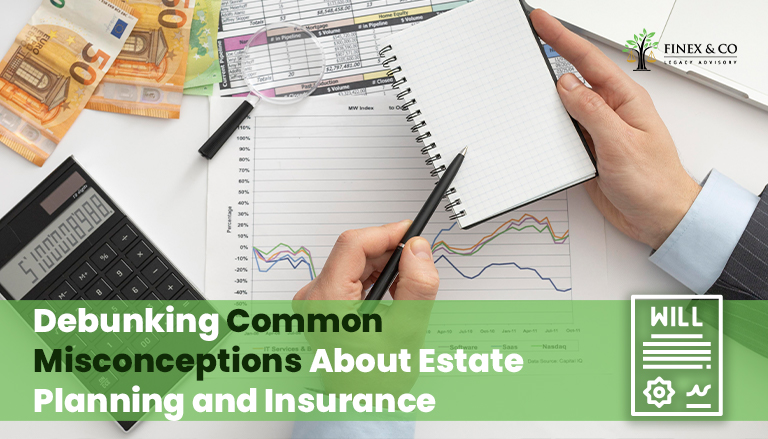Estate planning and insurance are crucial aspects of financial management, yet many individuals harbor misconceptions that can hinder informed decision-making. Addressing these myths is vital for helping public navigate the complexities of securing their financial future. In this article, we will debunk some common misunderstandings surrounding estate planning and insurance.
Myth 1: “Estate Planning is Only for the Wealthy”
One prevalent misconception is that estate planning is only necessary for individuals with substantial wealth. In reality, estate planning is relevant for everyone, regardless of their financial status. Estate planning encompasses tasks such as creating a Will and designating beneficiaries. These elements ensure that your assets are distributed according to your wishes and that your loved ones are taken care of, irrespective of the size of your estate.
Myth 2: “Insurance is Only for those in Poor Health”
Another common misconception is that insurance is only necessary for individuals with existing health issues. Insurance, whether life, health, or disability, is designed to provide financial protection in unforeseen circumstances. Waiting until health problems arise can result in higher premiums or even denial of coverage. Therefore, obtaining insurance when one is healthy is a proactive and cost-effective approach.
Myth 3: “A Will covers all estate planning needs”
Some individuals believe that having a Will is sufficient for comprehensive estate planning. While a Will is a crucial component, it may not cover all aspects of an individual’s estate planning needs. Testamentary trust, for example, offer additional benefits such as providing for parents, minor children, or family members with special needs over an extended period.
Myth 4: “Life Insurance Payouts are Taxable”
There is a misconception that life insurance payouts are subject to income tax. In reality, the death benefit from a life insurance policy is typically tax-free and does not have to be declared in tax returns. This means your family will receive the entirety of the payout.
Myth 5: “I’m Too Young for Estate Planning”
Some individuals believe that estate planning is only necessary later in life, and younger individuals tend to postpone it. However, unexpected events can happen at any age. Estate planning is not solely about the distribution of assets upon death.; it also involves decisions about healthcare directive. Starting the estate planning process early ensures that individuals have a solid foundation in place, providing peace of mind and adaptability to life’s changing circumstances.
Myth 6: “One Size Fits All in Insurance”
Another misconception is assuming that all insurance policies are the same. Public may believe that a generic insurance plan will cover all their needs. In reality, different life stages and financial situations require tailored insurance solutions. Whether it’s term life, whole life, or savings and investment-linked life insurance, a personalized approach ensures that the coverage aligns with the individual’s specific goals and circumstances.
Conclusion:
Estate planning and insurance are integral components of everyone’s financial strategy, regardless of their financial standing. By dispelling these misconceptions, our aim is for public to gain a more comprehensive understanding of the pivotal roles that estate planning and insurance play.
You may make an appointment with our legal advisor here: https://calendly.com/finex-and-co-legacy-advisory/tea-talk-with-legalexpert















